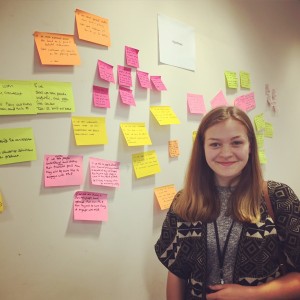This blog is written by Sophie who was on work experience with UNIQ Family Wealth this week:
I was recently presented with the fantastic opportunity to spend a week doing work experience within the finance sector in Bristol and Cardiff. For three days, I worked at the head office of a bank in Bristol, talking to many people within the marketing department about their careers and what their jobs entail. This proved to be invaluable, because the chance to talk to a wider range of people about their experiences and careers is rare, and I found out about what each person believed they would be when they were my age- something I found especially interesting, because not many people are where they thought they would be years ago. That was reassuring, because entering A levels and further education forces you to think about possible career choices and makes it hard to keep your options open to future change.
For Thursday and Friday, I went to visit UNIQ Family Wealth, a company specialising in financial planning and advice. Here, I saw how a small team of people can work closely in different roles to satisfy each a client’s personalised needs, and the importance of personal and close relationships with clients when creating a brilliant and caring service.
As a young person myself, I know how daunting the world of finance is. Financial jargon appears to be another language, and the sector is constantly changing. Considering that the young people that surround us are the next CEOs and managers, it is important that we are educated.
There are many online resources available, for example: Barclays money skills provides useful information and calculators on things such as budgeting and credit. Personal finance academy provides interactive and relevant modules and learning for young people, and a ‘what’s your money IQ’ quiz to test yourself on what you may already know. Also, Personal finance education group is a non profit organisation dedicated to teaching young people and increasing the curriculum surrounding finance education within schools.
Despite this, more can be done. A simple Google search provides only a few links, something rare considering the expanse of the World Wide Web. It seems that targeting young people where they spend the large majority of their time- the Internet- may be the way forward, but it was unnerving to learn that ‘loans for young people’ was a much more popular search than the financial knowledge behind it.
So, in a generation where google maps replace treasure maps, what can be done to engage young people in finance?




